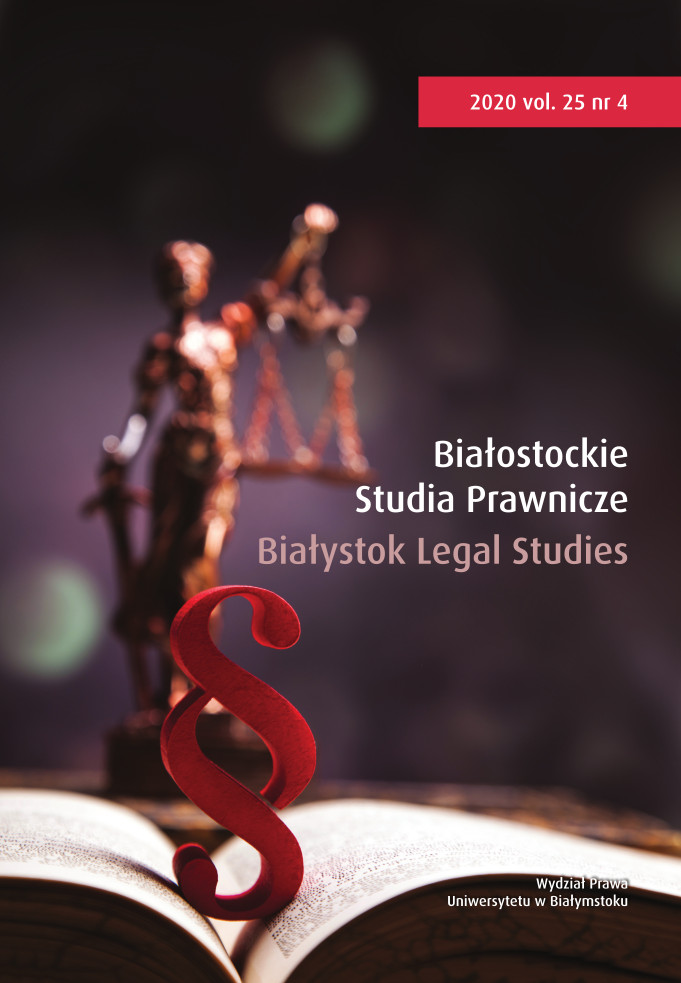Protection of Students’ Personal Data in Times of Development of Biometric Technologies as a Challenge for Universities in Poland
Słowa kluczowe:
students, biometrics, GDPR, right to privacy, personal data protectionAbstrakt
Biometric technologies have been gaining popularity lately. An increasing number of enterprises and public entities worldwide are using them for security measures. Many universities in the European Union have also begun to recognise the benefits of implementing biometric systems in their organisations, and it is just a matter of time before universities in Poland join them as well. However, biometric data used by such systems are especially sensitive as they may reveal intimate information about data subjects. As such, they are counted among special categories of personal data, the processing of which is in principle prohibited by art. 9 (1) GPDR. Furthermore, the processing of students’ personal data demands special care from universities as they are vulnerable data subjects. Students are namely subordinate to university authorities, which significantly limits their scope of autonomy. Therefore, the use of biometric technologies poses a challenge for universities in Poland. The following article aims to present the main reasons why students are vulnerable data subjects and which legal grounds provided by GDPR are most suitable for processing their biometric data by universities.Bibliografia
Chomiczewski W., Przesłanki legalizacyjne przetwarzania danych osobowych, (w:) D. Lubasz (red.), Meritum Ochrony Danych Osobowych, Warszawa 2020.
Klat-Wertelecka L., Organy szkoły wyż szej w postę powaniu administracyjnym, (w:) J. Blicharz, A. Sus, A. Chrisidu-Budnik (red.), Zarządzenia szkołą wyższą, Wrocław 2014.
Lewandowski R., Biometria – nowe zastosowania, „Przegląd Bezpieczeństwa Wewnętrznego” 2017, nr 17.
Malgieri G., Niklas J., Vulnerable Data Subjects, „Computer Law and Security Review”, Special Issue on Data Protection and Research 2020, vol. 37.10.1016/j.clsr.2020.105415
Rojszczak M., Ochrona prywatności w cyberprzestrzeni z uwzględnieniem zagrożeń wynikających z nowych technik przetwarzania informacji, Warszawa 2019.
Sobczyk A., RODO. Rozproszona władza publiczna, Kraków 2019.
Stahl M. (red.), Prawo administracyjne. Pojęcia, instytucje, zasady w teorii i orzecznictwie, Warszawa 2016.
Zieliń ski A., Podmiotowoś ć prawna, (w:) S. Pikulski (red.) Ius et lex. Księ ga Jubileuszowa Profesora Andrzeja Kabata, Olsztyn 2004.
Żurawik A., „Interes publiczny”, „interes społeczny” i „interes społecznie uzasadniony”. Próba
dookreślenia pojęć, „Ruch Prawniczy, Ekonomiczny i Socjologiczny” 2013, nr 2.



